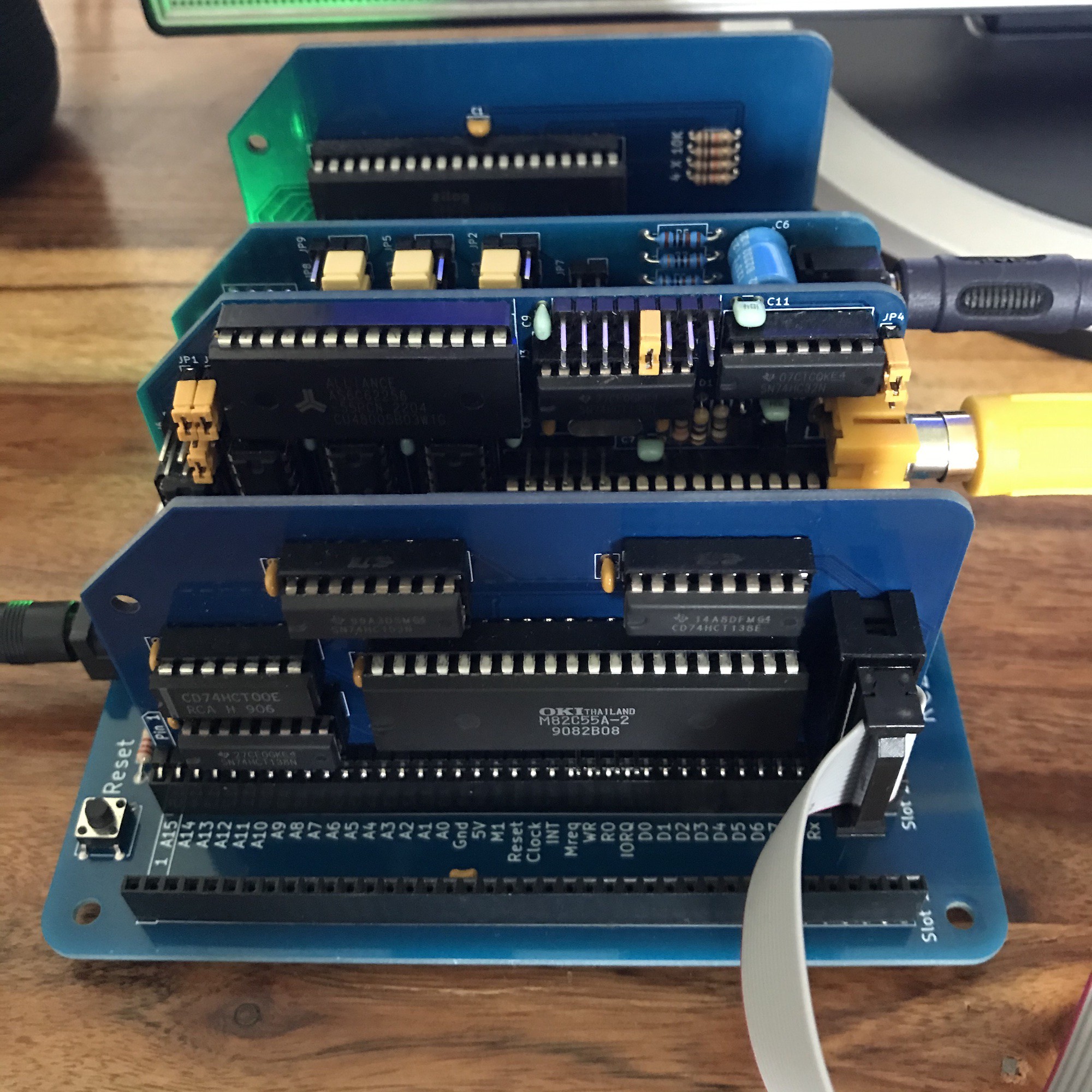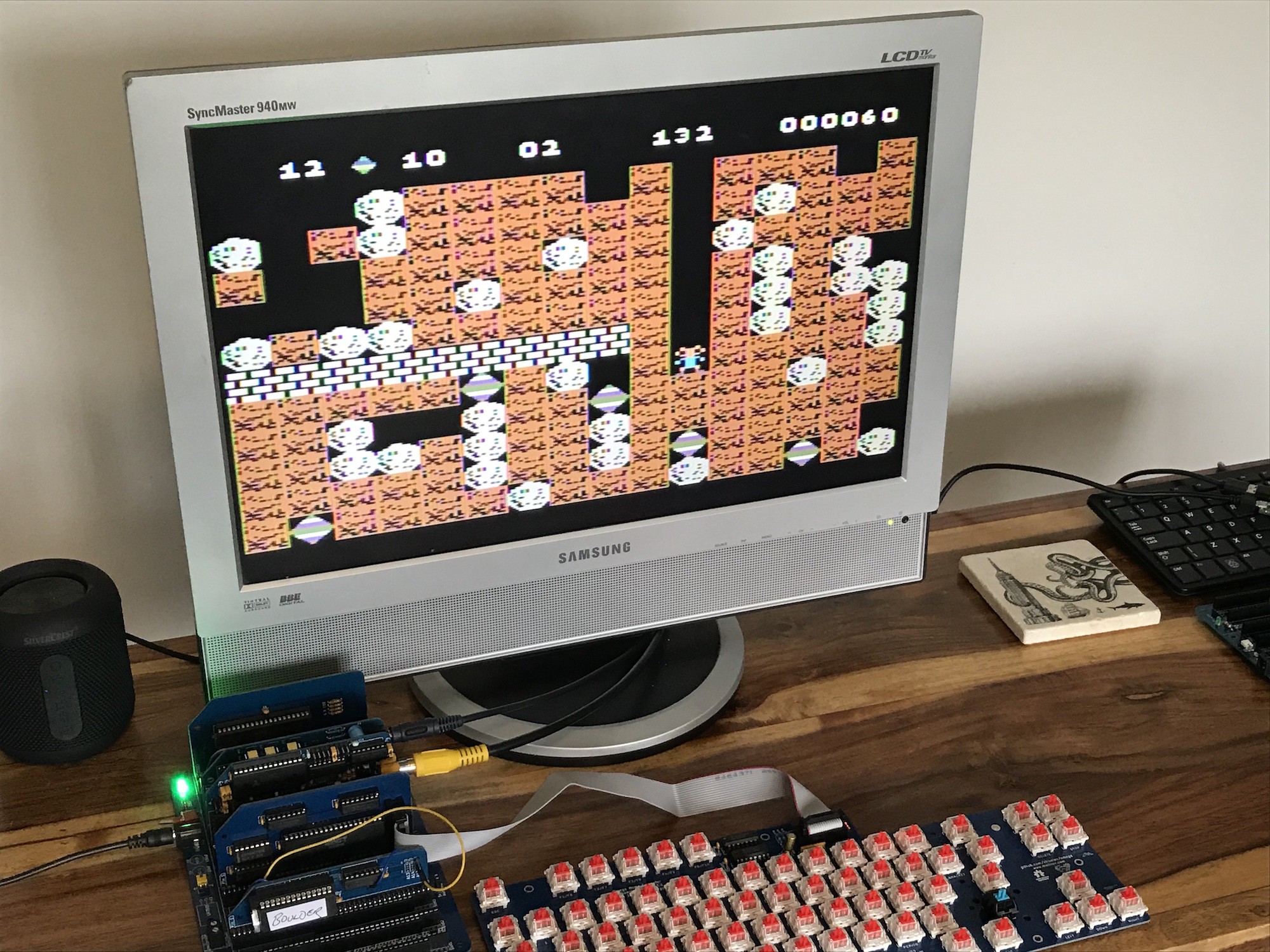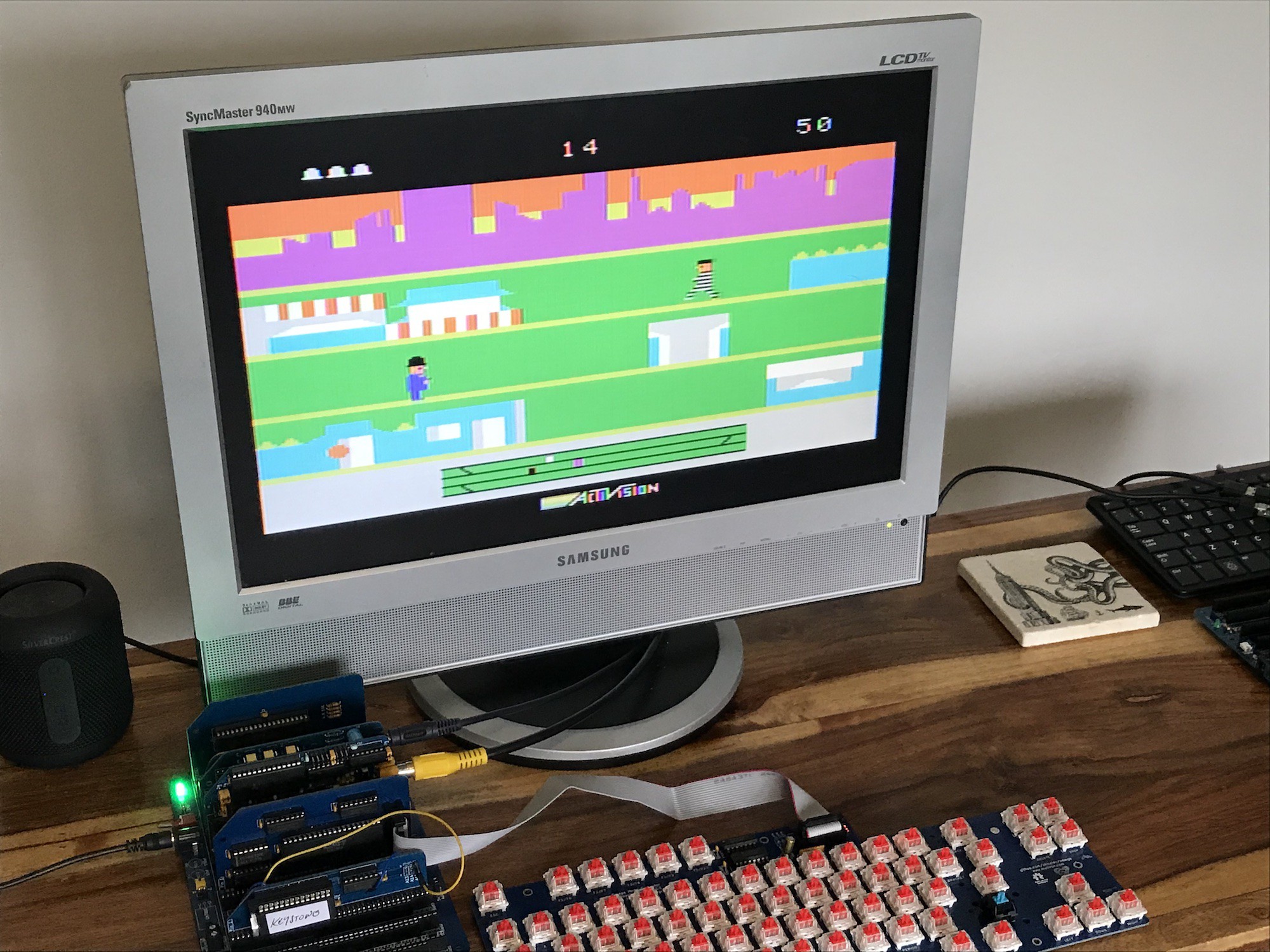In the last log I proved that an altered version of my USB keyboard interface could work with MSX. It was on breadboard plus a heavily-bodged Minstrel keyboard interface.
I've put that onto a pcb so it now looks self-contained and neat. I've also developed the software to a point where it's working well, with a few things to sort out. Here it is in action, It has a serial input, so BASIC programs can be pasted in via a terminal. Here's a drum machine program, originally published in MSX Computer Magazine in 1986 and now available for download at http://marmsx.msxall.com/basic/revista/english.php
Obviously after entering the program, I'm using the USB keyboard to run and use the software.
The USB keyboard adaptor is in the shape of a standard RC2014 module and has the footprint for the backplane connector so that it could sit in a spare slot for neatness. It doesn't need the connection to the backplane, so could just swing in the breeze as here (or sit in a smaller separate backplane)

This is a great solution, it's cheaper than building a dedicated MSX mechanical keyboard and it has the serial input feature. The elephant in the room is that it uses a microcontroller which is way more powerful than the target computer. Replacement parts or add-ons for 8-bit computers which use microcontrollers are nothing unusual today but it doesn't feel ideal to me.

Here's a shot of the computer as it stands. When using BASIC as above, the whole lot fits on a backplane 8. In this shot you can also see the Mk2 PPI module which now contains some logic previously on a breadboard. I've had to bodge on a resistor network for pullups on the column lines, so this still isn't the final version. I'll probably also fit a right-angled connector so that this doesn't hog two slots as here.
In order to explore all of the options, I'm also building a mechanical keyboard. The Omega keyboard exists and works with this project. I've managed to order all of the parts for about £40 (and now have some spare pcbs). It has the special keys such as select and stop (required when using programs and games) and it has 'inverted T' cursor keys which work well with all of the games that I've tried.
This is a work in progress, obviously the keycaps haven't arrived yet but it's perfectly usable. Here's another video of me playing a few games. I've switched to a Pro backplane because I need a 'ROM cartridge module' plugged in. I've now fitted a ZIF socket and have put a few games onto separate rom chips, so switching cartridge games is really quick and easy.
Here are some shots of some other favourite games I've already burned to rom chips


Discussions
Become a Hackaday.io Member
Create an account to leave a comment. Already have an account? Log In.